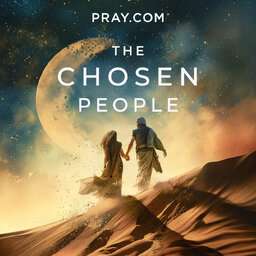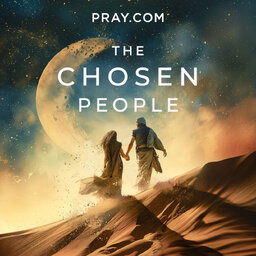Joseph: The Conflicted
# 56 - Joseph: The Conflicted - In this episode of The Chosen People with Yael Eckstein, Joseph wrestles with forgiveness and justice as his brothers return to Egypt with Benjamin. Explore the powerful themes of family, redemption, and God’s divine orchestration in this dramatic chapter of Genesis.
Episode 56 of The Chosen People with Yael Eckstein is inspired by the Book of Genesis.
Sign up for The Chosen People devotionals at https://www.thechosenpeople.com/sign-up
For more information about Yael Eckstein and IFCJ visit https://www.ifcj.org/
Today's opening prayer is inspired by Psalm 133:1, “See how good and how pleasant it is for brothers to live together in unity!”
Listen to some of the greatest Bible stories ever told and make prayer a priority in your life by downloading the Pray.com app.
Show Notes:
(02:21) Intro with Yael Eckstein
(03:32) The Conflicted - Cinematic Retelling
(22:12) Reflection with Yael Eckstein
 The Chosen People
The Chosen People


